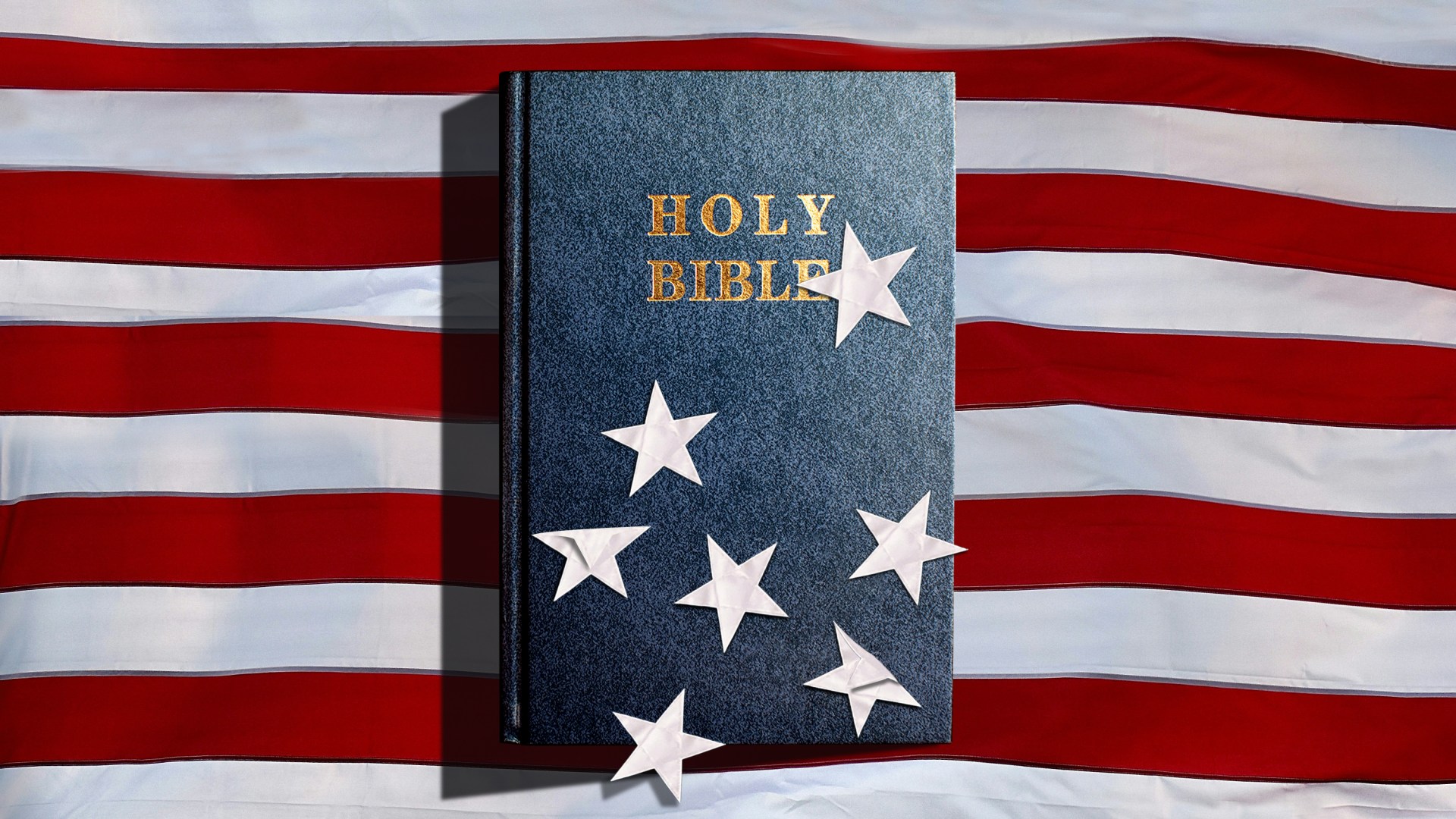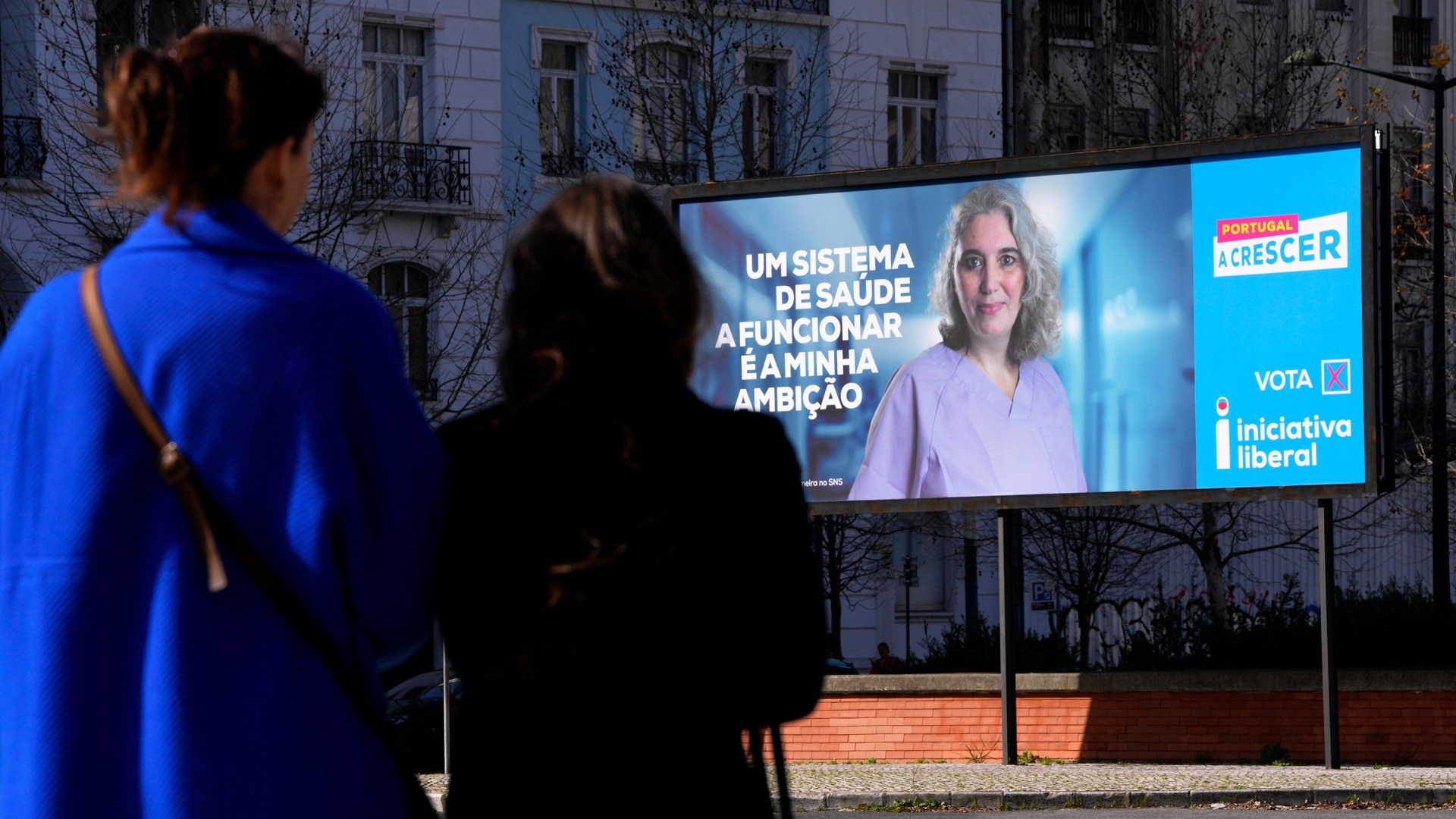It’s not news that modern American Christians are deeply divided over politics—to the point that it may seem we have more in common with people who share our political beliefs than with our siblings in the faith. That division raises the question: If we’re all reading the same Bible, how do we end up with such conflicting and conflict-prone politics? Is our political engagement actually shaped by Scripture?
Preston Sprinkle’s new book, Exiles: The Church in the Shadow of Empire, challenges American Christians to recenter our politics on the Bible rather than on American culture and to found our political identities on our faith rather than on our partisanship. Some of his applications of Scripture are questionable, but his altar call is welcome and necessary for the American church.
A longtime Christian writer and public intellectual, Sprinkle has made a name for himself as an orthodox evangelical with some uncommon positions, including his commitment to Christian nonviolence, his annihilationist view of Hell, and his approach to issues of sexuality and gender identity. In Exiles, Sprinkle first uses his training as a biblical scholar to take readers through what Scripture says about how God’s people should live politically, then considers how Christians should apply these lessons in modern-day America.
The strongest feature of Exiles is its call for Christians to challenge our own political views with a careful reading of the Bible. Sprinkle is exactly right on this: It’s far too easy to assume our politics are an outgrowth of our faith without ever giving them serious scrutiny. Sprinkle challenges Christians on the left and right alike to see how Scripture both affirms and runs against parts of their politics:
Social justice. Concern for the poor. Economic checks on the rich. Redistribution of wealth. Forgiveness of debt. These aren’t liberal or Marxist or “woke” ideals. They’re straight out of the Bible. So are other values like small governments, limits on centralized power, and able-bodied people working hard and saving for the future. When Christians think about money and economics, we need to stop letting the rhetoric and categories of Babylon’s culture wars shape our values. The Bible provides us with some rich categories for thinking about these things.
Christians can disagree with his interpretation here and elsewhere. But the bigger and more important point Exiles makes is that our disagreement should be grounded in careful exegesis, not partisan instinct.
Biblical guidance may not always seem practical, efficient, or shrewd, yet as Sprinkle reminds us, the Bible teaches that “things are not always as they seem.” He quotes 1 Corinthians 1:27: “God chose the foolish things of the world to shame the wise; God chose the weak things of the world to shame the strong.”
Sprinkle’s willingness to think in scriptural rather than partisan terms is evident when he turns to applying his exegesis to recent political situations and controversies. There’s a lot of good here, especially in his advice for the church to bypass seeking government solutions to problems that communities can solve on their own. His example of local churches using their own money to cancel medical debt is deeply inspiring and something more congregations should do regardless of the future of health-care policy and insurance.
Unfortunately, this application portion is also the weakest part of Exiles. Sprinkle’s message is particularly confused on whether and how Christians can wield state power.
He says that whenever the church has gained power from the state, it “has never ended well”: “It’s almost always the case that when the church becomes too enmeshed with the power of the state, the upside-down kingdom of God is turned right side up. Christianity is simply not designed to occupy positions of worldly power without betraying its mission and witness.”
But that comes just a few pages after he praises Martin Luther King Jr. for using state power to end segregation—not only state-enforced inequality like segregated public schools or buses but private segregation in restaurants and other public accommodations. Similarly, Sprinkle is skeptical of “working in and through the demonically empowered authorities of earth to bring justice to the world,” likening it to “working with a dragon-empowered beast to defeat … the dragon.” Yet he supports passing laws to ban slavery and segregation and approvingly quotes King’s observation that “the law can’t make a man love me, but it can restrain him from lynching me.”
To be clear, I support those laws too and am also wary of Christian hunger for power. But his condemnations of state power are so sweeping and absolute and his criteria for exceptions so vague that he comes across as saying, When I don’t like the results, state power is bad, and when I like the results, state power is good. This is not a helpful framework for Christians trying to determine how we should engage with politics. I believe it’s possible to distinguish between different Christian uses of state power. But it requires a coherent theory of the proper scope of government authority alongside a theology of Christian engagement with politics and the state. Sprinkle may have such a theory, but he doesn’t spell it out here.
Sprinkle’s account of American Christians’ political tribalism is also dubious. He lays considerable blame on the “God and country” mindset, which endorses a split allegiance between Jesus and America so long as Jesus comes first. Sprinkle argues that, in practice, we don’t put Jesus first, and accordingly advises eliminating a strong sense of national identity, replacing it with a Christian identity. We can be patriotic, Sprinkle says, but only insofar as it’s a soft patriotism that doesn’t command allegiance.
This explanation doesn’t hold up. Sprinkle admits that both left- and right-wing Christians are politically tribal, but polling consistently shows left-leaning Americans are less likely to claim high levels of patriotism and national pride. If Sprinkle’s analysis is correct, you’d expect that politically progressive Christians would be less politically tribal—but, in fact, the opposite is true.
As sociologist George Yancey demonstrates in his book One Faith No Longer, liberal Christians are more likely than conservative Christians to put their politics above their faith, use their politics to determine their theology, determine their friend group based on their political tribes, and use “us” and “them” language based on politics rather than theology. As Yancey summarizes in an article about his book for The Gospel Coalition, “political conformity is more important for progressive Christians than for conservative Christians,” and “progressive Christians have an underlying value system that leads them to a stronger political loyalty than the value system of conservative Christians does.”
A better explanation than Sprinkle’s—which works across the political spectrum—is that Christians give more time and attention to our political (and cultural) identities than to our identity in Christ. This is the case made in books including James K. A. Smith’s Desiring the Kingdom;Handing Down the Faithby Amy Adamczyk and Christian Smith;The Great Dechurching by Jim Davis, Michael Graham, and Ryan P. Burge; and Aaron Renn’s Life in the Negative World. We spend one day a week at church and six at school, at work, with friends, and online. Sprinkle hints at this reality with his advice to Christians to spend less time taking in political talk shows. But he’s more interested in telling American Christians to love America less than to seek Christ more.
On abortion, Sprinkle’s charge for churches to become more “hospitable and forgiving places for women with unwanted pregnancies” is disappointing as well. It’s right, so far as it goes. But it misses the work Christians are already doing to welcome and care for mothers who might otherwise seek abortions due to practical and financial hardship. It neglects the difficulty of balancing welcome with accountability in a culture that increasingly treats the two as mutually exclusive.
And it ignores complicating facts, like how higher-income women are more likely to have abortions, which suggests lack of financial support from Christians is not the only reason American women choose to abort. All this means that sincere Christians looking for a practical, nonpartisan path forward on abortion will find little actionable guidance in Exiles.
For all that, Sprinkle’s call for Christians to firmly ground our political beliefs in the Bible is a worthy one and one our country desperately needs. He doesn’t have to get every application right for the bigger principle to be vital. In fact, I hope this book sets off a flurry of exegetical debate over Sprinkle’s ideas. If it sends Christians back to Scripture, Exiles couldn’t ask for a more worthwhile legacy.
Joseph Holmes is a Christian culture critic and podcast host living and working out of New York City. He has written at outlets including Forbes, The New York Times, Religion Unplugged, Relevant, and An Unexpected Journal. He cohosts a weekly podcast called The Overthinkers.







































